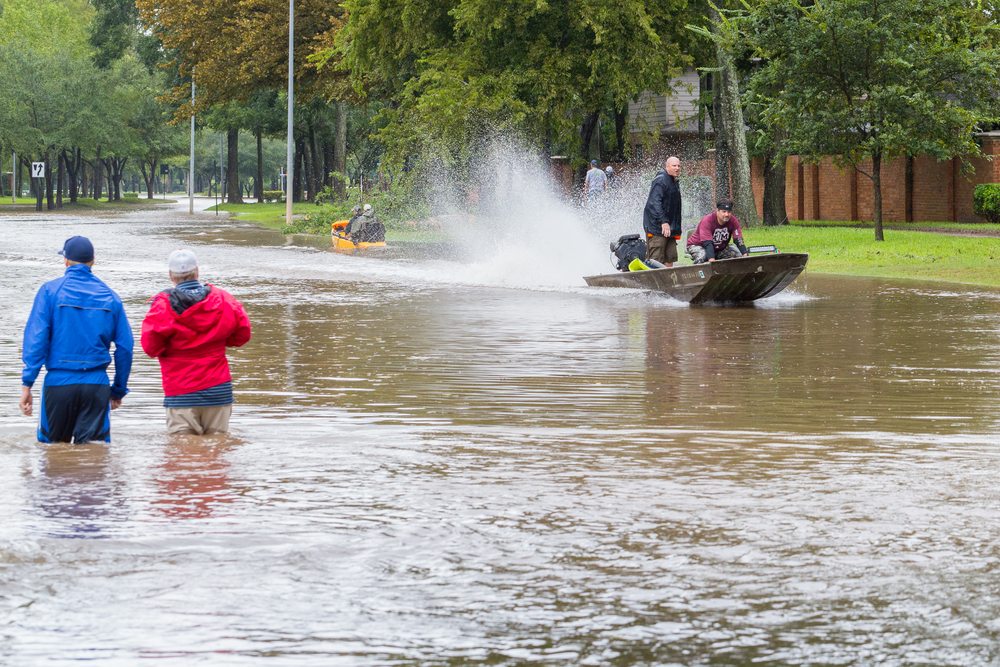
As people rebuild from the damage caused by hurricanes Harvey and Irma, they should also be aware of the public health risks related to flooding, including diarrheal infections and mosquito-borne illnesses.
“What people don’t often realize is that there’s a significant health risk from flooding,” William Powderly, president of the Infectious Diseases Society of America (IDSA), told Homeland Preparedness News.
The biggest concern from flooding is contamination. In South Texas, where Harvey brought a record 52 inches of rain, and South Florida, where a massive category four hurricane made landfall over the weekend, people are exposed to unclean floodwaters and the potential for contaminated water to get into the water supply. This contamination carries an infection risk, he said.
“The major risks that you have are diarrheal illnesses and infections that originate from animals,” Powderly said. He cited Leptospirosis, typically caused by rodents such as from rat urine in the floodwaters, as one particularly worrisome bacterial infection. Without treatment, Leptospirosis can lead to kidney damage, meningitis, liver failure, or worse.
Shelters as well as residences compromised by flooding are fertile breeding grounds for noroviruses and other infections. People that have open wounds, perhaps caused by storm-related debris, are particularly vulnerable. While it is very unlikely that diseases like cholera and typhoid will occur, pathogens that include Vibrio vulnificans, non-tuberculosis mycobacteria, and Legionella are found in water, with flooding increasing risks of exposures, Powderly added.
There are also risks of mosquito borne illnesses, like Zika and West Nile virus. Stagnant water is a very potent breeding ground for mosquitos.
“South Texas or South Florida are environments where you already have a risk of mosquito borne illness, which we saw most recently with Zika actually occurring in South Florida. But now you could have a spread of those mosquitos to a wider area. It’s a real opportunity for expanded breeding grounds for mosquitoes,” Powderly said.
While public health professionals on the ground in Houston and Florida and other impacted areas are well prepared to handle the threatened spread of diseases, Powderly said they are doing more with less.
“Historically we have not invested enough in public health in the United States over the last twenty to thirty years so we’re always playing catch up when we have these emergencies,” he said. “It is one of the things that we need to maintain an investment in,” Powderly added.
Proposed budget cuts to funding the Centers for Disease Control and Prevention under the Trump administration is worrisome to IDSA, he added. “The CDC is our first line of public health defense, so we really can’t afford as a country, in our opinion, to under invest in public health because of the consequences.”
Powderly emphasized that widespread disease outbreaks after flooding remain uncommon.
However, lack of electricity and poor housing in Houston provide an atmosphere ripe for consumption of unsafe food and water, which can lead to illnesses such as E. coli. And as homes start to dry out, the wet, damp environment creates conditions where mold can thrive and spread. This can lead to respiratory issues, sinus infections, asthma, and other maladies.
Individuals can mitigate the risks and limit the spread of infectious diseases in several ways.
Access to clean water is critical. If the public water supply is in any way compromised, bottled water must be used as much as possible, Powderly said. With widespread power outages, people should also make sure their food is clean and uncontaminated.
Hand hygiene is essential, Powderly added. “It’s really important that people wash their hands on a regular basis and wash their kids’ hands, particularly when you’re handling food. It’s a simple thing, but it’s really very important,” he said.
Finally, people should be aware of stagnant water in their backyard or community. It’s best to cover it or get rid of it to decrease the risk of mosquito spread. Or if not, try to avoid it and use bug spray where appropriate.
“We urge people who are concerned about the risks of any exposure they have experienced to seek medical care,” Powderly said.

